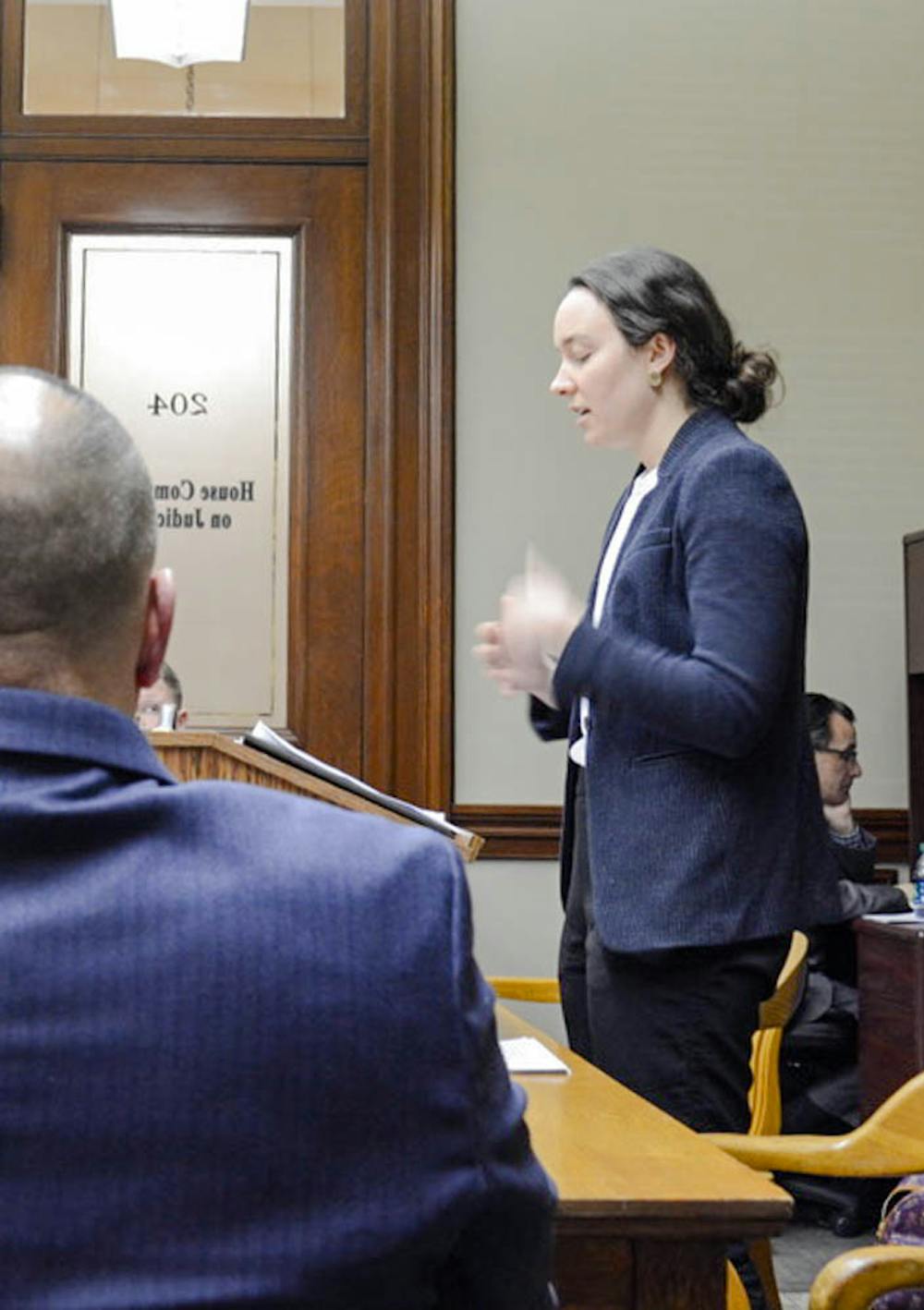As a recent Brown alum waited to enter the hearing room to testify, a woman exclaimed from the room’s threshold: “Are you the author? Oh my god! (Your thesis) has been (essential) for getting this issue taken up again.” She shook hands with the former public policy concentrator, Rachel Black ’16, who testified Wednesday before the House Judiciary Committee in support of a criminal justice reform bill.
Black used her undergraduate senior thesis research as evidence to support House Bill 5196. The bill mandates “that we do not criminalize people for their inability to pay court fees,” said Jordan Seaberry, director of public policy and advocacy at the Institute for the Study and Practice of Nonviolence .
Black’s senior thesis examined the data of 8,000 individuals imprisoned in Rhode Island Adult Correctional Institutions in 2015 and found that “incarceration for failure to pay doesn’t appear to work as a debt collection mechanism.”
Black’s research “really put a human face on something that’s hard to put a human face on,” said Ross Cheit, professor of political science and international and public affairs. “She found both real differences between how judges handle these things and I think, in some ways, slippage between stated policy and actual practice,” Cheit, who was Black’s first thesis reader, added.
Representatives Christopher Blazejewski, Grace Diaz, Scott Slater, D-Providence, Jean Philippe Barros, D-Pawtucket and Deborah Ruggiero, D-Jamestown proposed the bill Jan. 25 to strengthen a law regarding criminal procedure costs which is already in place. HB 5196 would strengthen the current law by defining and mandating that courts assess a defendant’s ability to pay court fees before issuing an order requiring payment. The original legislation was passed in 2008 “to protect indigent defendants from the financial burden of court debts and the harm caused by jail time for failure to pay court debts without first assessing ability to pay,” according to Black’s memo summarizing her research.
The memo also cited a 2016 U.S. Department of Justice reassertion that defendants who cannot pay court fees should not become debtors.
When defendants incur court debts and do not pay them, a warrant is automatically issued for their arrest, Black explained. The courts’ consistent failure to assess the ability of defendants to pay has resulted in unjustified incarcerations, she said. At least half of the more than 1,500 Rhode Islanders imprisoned for at least 24 hours for unpaid court debts “should never have been assessed this debt in the first place,” Black added. She even noted that the state loses money on this debt collection because “the cost of arrest and incarceration exceeds any revenue that would come in from this group.”
Joining Black in support of the bill were Rhode Island ACLU Executive Director Steven Brown and Nick Horton ’04, co-executive director of Open Doors, who, along with Natalia Friedlander of the Rhode Island Center for Justice, invited Black to testify. The bill met with little opposition, though Black says that some legislators might oppose the bill on “moral grounds” to defend against unpaid debts.
“Because we’re in such a small state,” student research can have an impact on state government, Cheit said. “It’s one of the great opportunities of Rhode Island.”
Black now works as an associate at Education Resource Strategies, a national education-focused non-profit.
An earlier version of this article stated that Rachel Black'16 testified in support of House Bill 196. In fact, she testified in support of House Bill 5196. The Herald regrets the error.





